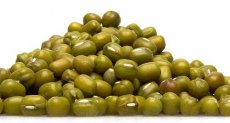New publications
Beans can save you from sepsis
Last reviewed: 01.07.2025

All iLive content is medically reviewed or fact checked to ensure as much factual accuracy as possible.
We have strict sourcing guidelines and only link to reputable media sites, academic research institutions and, whenever possible, medically peer reviewed studies. Note that the numbers in parentheses ([1], [2], etc.) are clickable links to these studies.
If you feel that any of our content is inaccurate, out-of-date, or otherwise questionable, please select it and press Ctrl + Enter.

Researchers at the Feinstein Institute have found that beans, which are widely used in Chinese cuisine, protect against such a dangerous disease as sepsis, an infectious disease that develops against the background of a decrease in the body's defenses and develops as a systemic inflammatory reaction when an infection enters the blood. In common parlance, this disease is known as "blood poisoning."
DNA proteins and the HMGB1 protein from the nuclear non-histidine HMG protein group have been found to mediate inflammation.
Inflammation is essential to maintaining good health - without inflammation, wounds and infections will never heal. However, persistent inflammation can lead to tissue and organ damage and diseases such as sepsis. Sepsis affects about 750,000 Americans each year, with 28 to 50 percent of those dying. The nation's health care system spends $17 billion a year treating the disease.
Infection occurs when infectious agents (unicellular fungi or bacteria ) or their toxins enter the blood. The body's resistance to infection causes inflammation. With prolonged sepsis, cirrhosis of the liver develops, the heart, lungs, kidneys and brain are damaged. The probability of a fatal outcome is 17-50%.
Neutralization of the HMGB1 protein will protect the body from constant and persistent inflammation that leads to damage to organs and tissues.
Scientists at the Feinstein Institute have found that an extract from mung beans (species: Mung, genus: Vigna), which are widely used in Indian and Chinese cuisine and for medicinal purposes, can reduce the activity of the HMGB1 protein.
This was clearly demonstrated by an experiment that experts conducted on mice. The survival rate of the rodents increased from 29.4 to 70 percent (P <0.05).
"Many traditional medicinal herbs have been successfully used in the treatment of various inflammatory diseases, and now we have confirmed the therapeutic potential of another drug - mung bean extract," the researchers say. "Mung bean extract had a positive effect on mice infected with sepsis, which means that it may have a similar effect on people with the same diagnosis. Of course, more research is needed to prove the safety and effectiveness of using the components of this extract."

 [
[